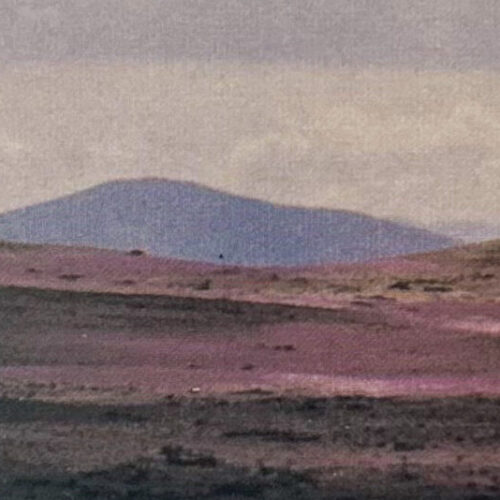In the morning, I made two, seven eggs in each. My husband came into the kitchen just as I was whisking the second batch, and he told me that one of the buffy hens had gotten herself on top of the little black and white, that the two of them were now stacked in a single roosting box like some strange poultry totem pole. The bottom hen, the black-and-white one, was our concern because a bare spot had appeared recently on her back, and featherless skin always attracts the attention of the other hens. Once chickens are focused on such a thing, the bullying can be relentless.
Okay, I said, now sautéing onions, I’ll check on her. Or maybe I only thought these words as I added bright red stalks of fresh chopped chard to the pan. By the time I added the greens themselves, I’d forgotten both hens. Even as I spooned sautéed vegetables into the yellow froth of their eggs, added the shredded cheddar, poured the golden mix into a casserole dish, and dusted the top with Parmesan.
I put the frittatas in the oven, set a timer, and went upstairs to shower and dress. Soon, our brunch guests arrived and we admired, then ate, the frittatas. Afterward, we talked at the table, catching up on lives and news and jobs and kids. Eventually, we carried dishes to the sink and cleaned up, tucking uneaten frittata into a glass container, setting it on a shelf in the fridge for tomorrow.
When the guests left, I went out to the garden, but the June sun beat down so fiercely that I soon retreated indoors again to wait for the cool of dusk. I read a book, both feet up on the couch, and the windows next to me wide open in hope of a breeze. When the sun finally sank below the trees, I ventured back outside. I filled my garden cart with fresh straw for the chickens, wheeled it to the coop, lifted the hinged lid of the roosting box, and found four perfect brown eggs.
I opened the side doors of the coop and plunged my hands in to clear out the old straw. Only then did I see her, the black-and-white hen that I’d forgotten. She was nestled in the straw, her head leaning against the wall. Her eyes were open and her beak was, too, and she panted in a way that I knew was dire.
As I ran to the barn, I thought about the book. The couch. The waiting for a breeze.
I made an isolation box for her to recover in, filled it with clean straw and small containers of water and chicken food. When it was ready, I carried our sweet black and white toward it and put her down, just for a moment, on the hot green grass, whispering lies I hoped would be forgiven. You’ll be all right, sweet girl. We’ll get you sorted out. I patted a nest into the clean straw. I lifted her from the grass toward that nest. And in that tiny moment, her whole body seized. I gripped her tighter and hoped she was saying she was afraid of the box, even though I knew she was not saying that at all.
I set her in the straw and stroked her soft black-and-white feathers and apologized for the forgetting and for the lie. And then I thanked her, too late, I know, for the eggs. For the frittatas.

Loree Griffin Burns
Trained as a molecular biologist, Loree Griffin Burns writes about science and the natural world for readers of all ages. She is the author of nine books of children’s nonfiction and has published essays and articles in journals like Yankee and Flyway, among others. She teaches creative writing at the Vermont College of Fine Arts.



